Canada’s “Proud Feminist” Leader
Son of a sexually liberated woman who lost interest in mothering, Trudeau is a case study in the effects of toxic femininity
[Above, Justin Trudeau tears up over the death of the lead singer of The Tragically Hip]
**
Under attack from all sides, including from his Liberal caucus, and with his approval rating at an all-time low of 22%, Canadian Prime Minister Justin Trudeau recently retooled a signature strategy: affirming his feminist credentials. He told an audience at a gala for Equal Voice (an organization that focuses on getting women elected to public office) that he is a “proud feminist” and would always be an “ally” for (feminist) women. He strongly suggested that misogyny was the reason Kamala Harris was defeated in the American federal election.
For Trudeau, being a feminist “ally” involves accepting that political power and sexual freedom are the highest goods for women, ignoring the fact that the progress women have made toward these goals has not made them any happier. The main initiatives touted by Trudeau at the gala were government-funded daycare, government-funded contraception, and government-funded abortion—all necessary to liberate women from the alleged burdens of motherhood so that they might pursue sexual pleasure and power.
As the icing on the cake, the Liberal government would also continue to pour money into “a gender-based violence strategy” that assumes men to be a threat and women victims. Trudeau would never admit+ that married women living with their husbands are significantly less likely than other groups of women to be victims of intimate partner violence.
Ironically—or not, as we will see—Trudeau’s actual track record with feminist women in his government has not always been smooth. Recently, he had a very public falling-out with his deputy prime minister, Chrystia Freeland, who made a resignation statement denouncing the feckless qualities she must always have known he possessed: his preference for “costly political gimmicks,” as she called them, and his too-evident self-focus. Freeland has decided to distance herself from Trudeau in the last days of his once-popular reign.
As Trudeau’s tenure reaches its end, it is worth reviewing his feminist style. Trudeau’s self-presentation has its roots in the mother who publicly humiliated Justin’s father, former Prime Minister Pierre Elliott Trudeau, abandoning their marriage and their three young sons in pursuit of the sexual freedom that Justin now champions. Margaret Trudeau’s wounding influence is indelibly stamped on her son, from his lavish public emoting to his capricious and at times cruel decisions.
[Margaret Trudeau, with her husband Pierre, in the early 1970s.
The following analysis is adapted from an essay published in this newsletter two and a half years ago]
**
As a personality, Justin Trudeau has always been a study in contrasts. He came into power promising “sunny ways” and transparency in alleged distinction from his predecessor, Conservative Prime Minister Stephen Harper. What he has delivered has been increasingly shambolic, petty, and vengeful.
Conservative leader Harper (above) had often been criticized for being over-controlling and cold, a coldness allegedly captured in a much-decried photograph that showed him shaking hands goodbye with his young son after walking him to school. A good father, so the thinking went, would have shown more sincerity and warmth.
Justin Trudeau had at first seemed all sincerity and warmth, even to the point of public spectacles of tearfulness and child-like ebullience. He was the first Canadian leader to march in the Gay Pride Parade as if it were his natural milieu, not merely a vote-seeking opportunity. His enthusiasm for Bollywood-style gyving, Hindu fancy dress, and participation in Islamic prayer, though often criticized, seemed genuine, at least in a high-school drama teacher sort of way.
[Trudeau at Canada’s largest Gay Pride Parade in Toronto]
When Trudeau refused to give a real answer to the question of why it was necessary to appoint a gender-equal cabinet as one of his first actions upon assuming office in 2015, his insouciant quip “Because it’s 2015” suggested an unstudied feminist allegiance: he was simply for equality—what was there to defend?
Earlier, his comments after the Boston Marathon bombings of 2013 (above, with Peter Mansbridge in interview) had emphasized that empathy rather than harshness was the best response to murderous acts of terror. People who blew off the limbs of children with bombs, he insisted, were those who felt “completely excluded.” He was determined to implement a warm and feminine approach to power, bringing all within his caring embrace.
But there has also been a harsher side to Trudeau, a fondness for dictators, an attraction to brute power, and an inability (or unwillingness) to hide his contempt for opponents. Perhaps his empathy for the Boston bombers was actually respect or even admiration for their willingness to use violence. Many were shocked by his open admission that one of the countries he most admired was the “basic dictatorship” of China.
When churches burned across Canada in the summer of 2021 in response to the alleged discovery of “mass” graves at a residential school (a discovery that has not yet yielded a single body), Trudeau condemned the arson but hastened to say it was “understandable,” which he would never have said if dozens of mosques had been set ablaze. Some victims, it seems, may deserve their victimization. About Canadians who chose not to take the Covid-19 vaccines, he could not control his impatience, unleashing a volley of stigmatizing, scapegoating rhetoric, calling them “misogynists” and “racists,” and asking “Do we tolerate these people?” (This was after promising, falsely, that no one in Canada would be forced to be vaccinated). For the long-haul truckers and others who camped out in Ottawa amid a sea of Canadian flags and bouncy castles demanding vaccine mandates be revoked, he showed a brutal contempt.
Which is Justin Trudeau: the soft feminist with the fancy socks, joy in Gay Pride, and empathy for those who feel excluded? Or the hard, bitter leader who could oversee without apology a violent RCMP crackdown on the freedom convoy protest that saw an Indigenous woman trampled under the hoofs of a police horse (below)?
The answer is: both. A clue to his doubleness is to be found in his relationship with his wayward, irresponsible mother.
**
A 60 Minutes Australia interview with Margaret Trudeau offers an illuminating glimpse into the character of the woman who mothered Justin. The interview took place in Los Angeles in 1979, about two years after Margaret had left Pierre Trudeau, Justin's father, who was Prime Minister of Canada from 1968 to 1979 and again from 1980 until 1984. Pierre had primary custody of their three young children; Justin was seven years old at the time of the interview.
As conducted by George Negus, the interview (image above) shows a very beautiful woman whose hyper-consciousness of her attractiveness is a paramount part of her identity. She is not, as has sometimes been claimed, stupid or vapid: many of her answers to Negus are clever in the manner of a bright adolescent convinced she can get away with her cheek. At times she flirts openly, tongue protruding through her lips.
The overall impact of her answers is horrifying for any viewer who fails to be enchanted.
She boasts about smoking marijuana, listening to psychedelic music, and giving up guilt over others’ expectations. Spouting clichés about being true to herself, she makes clear that she is more interested in having lovers than in looking after her three young children or showing any respect for the man she married. She dismissed her husband’s shock at her unfaithfulness as owing to “old-fashioned principles of fidelity,” and indicated that Canadian society would be better off if more people heeded their “feelings” rather than stodgy moral dogmas.
On the May night before the interview, when her husband lost his bid for re-election, she had been showing herself off at a chic New York city dance club. (Later on, her heartlessness and self-infatuation would be sympathetically explained away as owing to mental illness, thus alleviating the need for apology or contrition.)
I cringe to think of Justin Trudeau, even today, watching this interview. However he has since justified his mother’s defects, the interview shines a bright light on her toxic femininity, which I define as an exaggeration of typical feminine traits, including impulsiveness, an emphasis on feeling, hyper-sexualization, claimed moral superiority, and refusal to take responsibility for one’s actions.
Making clear that responding to others’ needs was a “trip” she was determined to avoid, she mentioned smilingly that it seemed a “pity” that Pierre could not accept her infidelity. But she also condemned her husband for seeing her, allegedly, as a “vessel” for the children he wanted. He was guilty, she implied, of an inability to see her as a whole human being rather than as a body to provide him offspring, a criticism taken straight from feminist talking points of the decade.
The interview included election campaign footage showing that only a few years previously, Margaret Trudeau had said in front of a crowd of Liberal supporters in Vancouver that her husband was a very loving human being who had taught her a great deal about loving. Now, she claimed that he "didn't want the warmth" she offered, and that she had to leave him because she was so committed to "loving." (She became infamous for her many torrid affairs with rock stars, politicians, and actors.) She also spoke of herself as deeply bored by “normal,” not seeming to care that children love and need “normal.”
Her sons figured hardly at all, it seemed, in her emotional world.
One can only speculate how deeply it must have affected the young Justin to realize that for his mother, the allegedly all-important experience of “loving” did not necessarily include him in any central way, and definitely did not include his father.
If he wanted to catch his mother’s fleeting attention, he would need to compete with other powerful sources of attraction: the drugs, the strange men, the glittering celebrity occasions. He had seen his mother publicly declare her love for his father—and then just a few years later dismiss the man and declare her boredom. Justin has admitted in later writings that his mother’s actions left him angry and full of self doubt, wondering why he wasn’t “reason enough” for her to stay with her family. His residual anger and attempt to be a feminist man have been striking features of his adult life.
**
Much about Justin’s behavior as political leader makes sense (if one accepts my armchair psychologizing) in relation to this dysfunctional primary bond.
From the time he was five years old, Justin knew that his mother felt she needed more than his father, and more than he and his two younger brothers, could provide.
By not loving him in the way a child needs to be loved, his mother left him uncertain how to be a man any woman would love. Growing up, he tried to be the sort of person his mother said she approved, an embodiment of her expressed ideals of loving spontaneity, the rejection of moral strictures, and the honoring of feeling. Justin Trudeau certainly learned to speak the language of feeling (it is in fact his primary political language): a rhetoric, as he well knew, that does not necessarily correspond to any actual acts of constancy, care, or forbearance.
Central to Justin’s development as a man and politician was his mother’s overt rejection of traditional masculinity, with its adherence to rule-based behavior, old-fashioned principles, and self-restraint. High-sounding sentiments, exuberance, and self-display were the leadership qualities that Justin Trudeau promised Canadians, with an undercurrent of petulance and resentment that remind us of the angry boy he once was.
In power, Justin showed his feminist-compliant authority by never judging women or holding them to traditional roles. He also “believed” them—even to the point of suspending two male Liberal MPs when women complained about (extraordinarily vague and dubious) sexual misconduct. As his mother had made clear, women should not be treated as vessels for men’s desire. Women had their own desires, their own needs, which must be taken seriously. Such feminist precepts were an oft-sounded theme of Justin’s leadership, showing that he had taken his mother’s perspective to heart (though his own record of sexual propriety was not pristine).
But the feminine approach had its evident drawbacks. For years, he got away with inanities about budgets balancing themselves and other howlers because he made it seem churlish to insist on specifics when his overall vision was so appealing. But then the mask would slip as he lashed out in anger, turning on those he perceived as betraying him (as his former Justice Minister Jody Wilson-Raybould can attest). On the personal side, there was betrayal and failure as well. After years of rumors that his marriage to Sophie Grégoire was more image than substance, it at last came to an end with an official announcement of separation.
Trudeau’s professed faith was in the power of love over law. But his sympathy for the “excluded” was nowhere to be found when he faced political resistance at home. When, in the winter of 2022, Canadian truckers and their allies gathered by the thousands on Parliament Hill to protest his vaccine mandate (whereby unvaccinated truckers who crossed the border to deliver goods would have to quarantine for two weeks), his response was an immediate, cold fury.
At first, he retired from public view, claiming he had contracted Covid and moving his family out of Ottawa on the pretext that the men in rigs constituted some sort of physical threat. The move—perhaps intended to show him a valiant victim—seemed weak, ridiculous. The only “violence” was to the sensitive ears of those in the vicinity of the truck horns. Trudeau might have defused the truckers’ challenge with a series of meetings and negotiations, as he had once met (ostentatiously) with Indian Chief Theresa Spence when she carried on a public hunger strike to protest the conditions of Indigenous bands, or when a Black Lives Matter group staged an event on Parliament Hill, with Justin there to take a knee. These types of meetings bolstered his image as a caring leader with a heart for social justice.
But when it came to the working-class men who kept food and other goods on store shelves, it seemed that he couldn’t even look in the direction of their protest, let alone walk a few meters from his office to hear their concerns.
Instead, he announced publicly that the thousands of (mostly) working people who had descended on Ottawa were a “fringe minority” with “unacceptable views.” They were far-right, white nationalists, extremists, anti-science. All the demeaning rhetoric came out with a hateful lisp. Some weeks later, having made no attempt even to appear to listen to their demands, he unleashed the full power of the state to crush them, invoking the Emergencies Act and instructing riot squads to move in, freezing bank accounts and suspending truck licenses. At one point in the final days of the protest, truckers were even told by the Ottawa Humane Society that they might have their dogs seized.
The outsized fury of the response, and the seemingly personal nature of the desire to permanently disable those who opposed him politically, bespoke a corrosive anger that swept away restraint or any desire for reconciliation. Outside of his feminist causes, Trudeau revealed that he lacked the ability to respond rationally to a national emergency.
The truckers, whatever their own circumstances and upbringing, presented a masculinity very different from Justin Trudeau’s, and one he seems to have found alien and disquieting. These were men who expressed themselves not through feminist rhetoric or stylish clothes, but through technical competence and strength. Being alone on the road, responsible for one’s rig and driving long hours, requires mental and physical toughness. Quite aside from their demands to Trudeau, their direct-action approach was explicitly opposed to the showy, politically correct style Justin preferred. When a difficult empathy and calm negotiation could have defused the situation, Justin didn’t have it in him.
In the end, Justin Trudeau’s initial promise of “sunny ways” was about as authentic as his mother’s commitment to “loving.” Not every son, of course, responds in the same way to an irresponsible and narcissistic mother, but none, as David Solway notes, escapes her influence. What is certain is that the poorly-mothered son of feminism who became Canada’s Prime Minister was one of the least tolerant, most divisive rulers Canada has ever had.
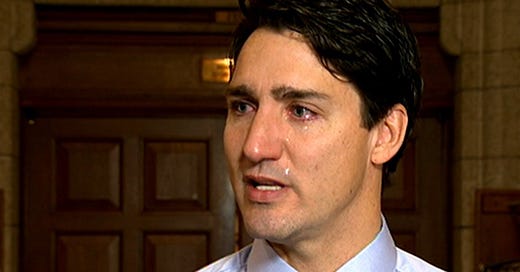



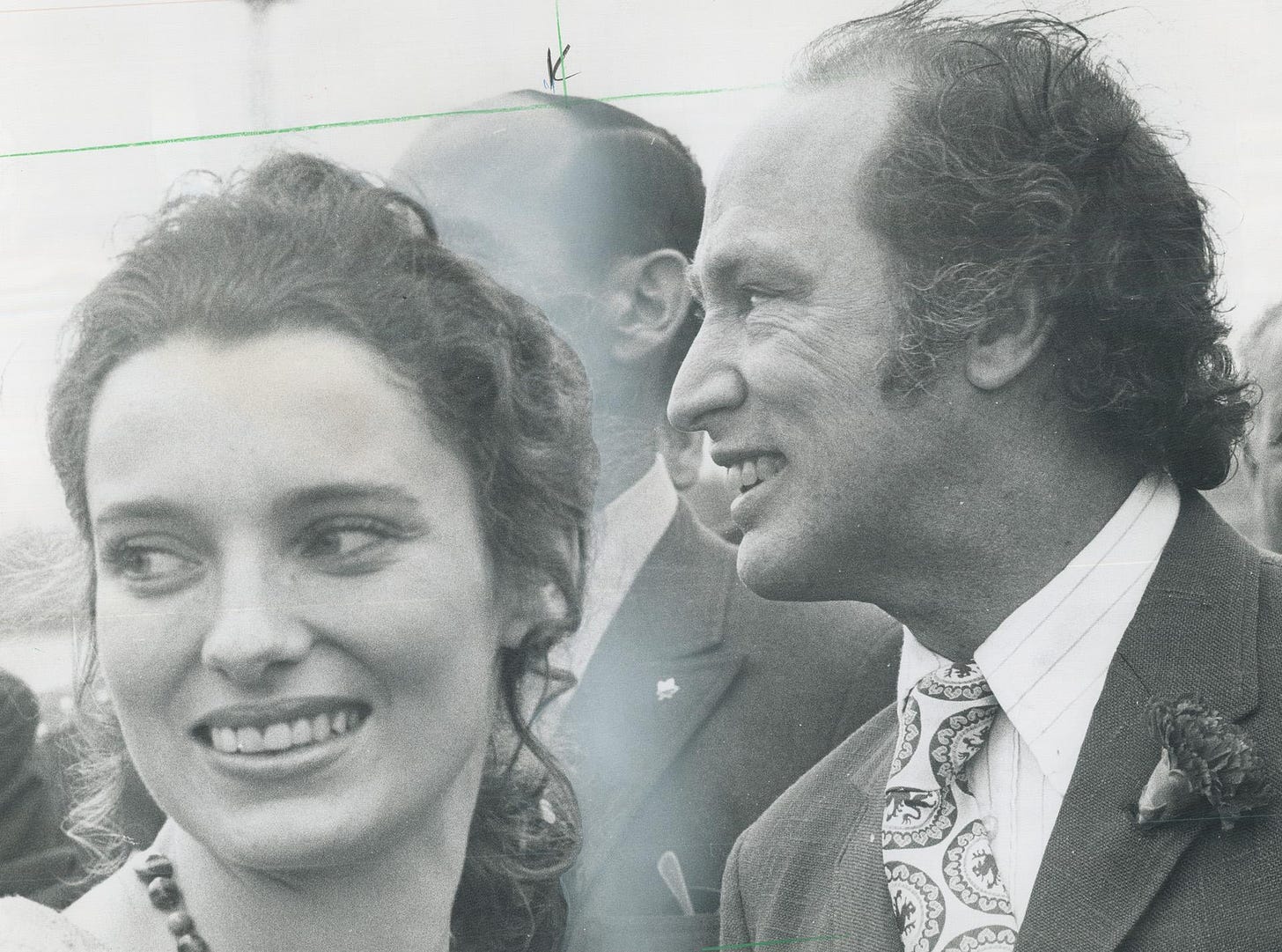
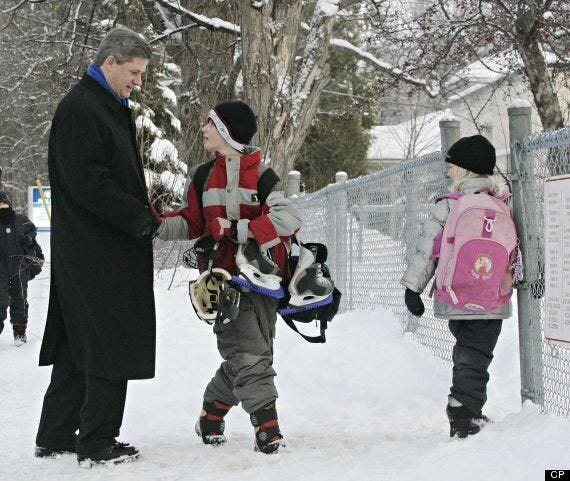
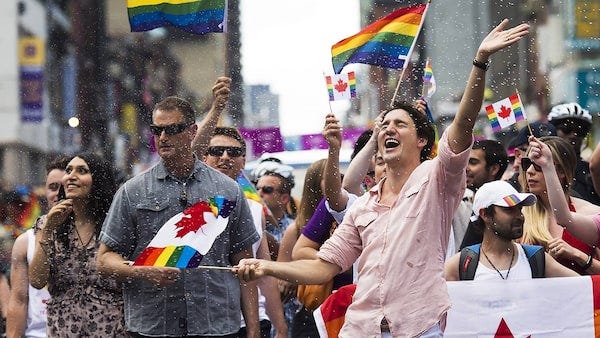
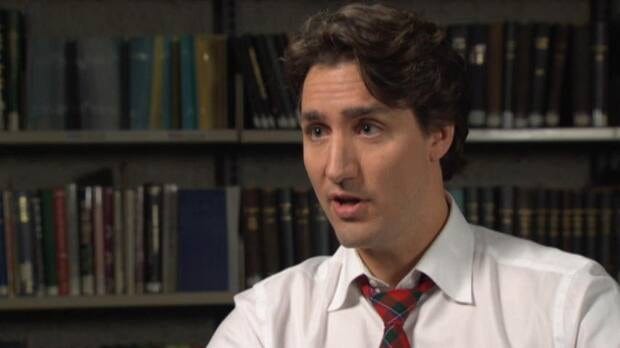
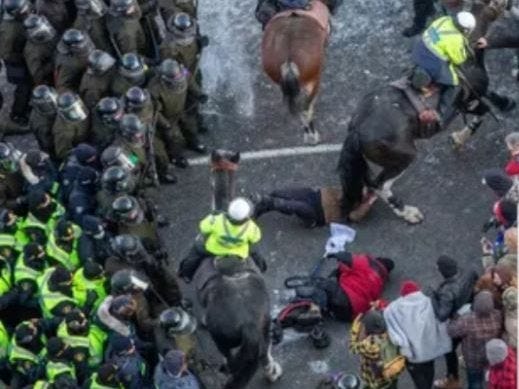

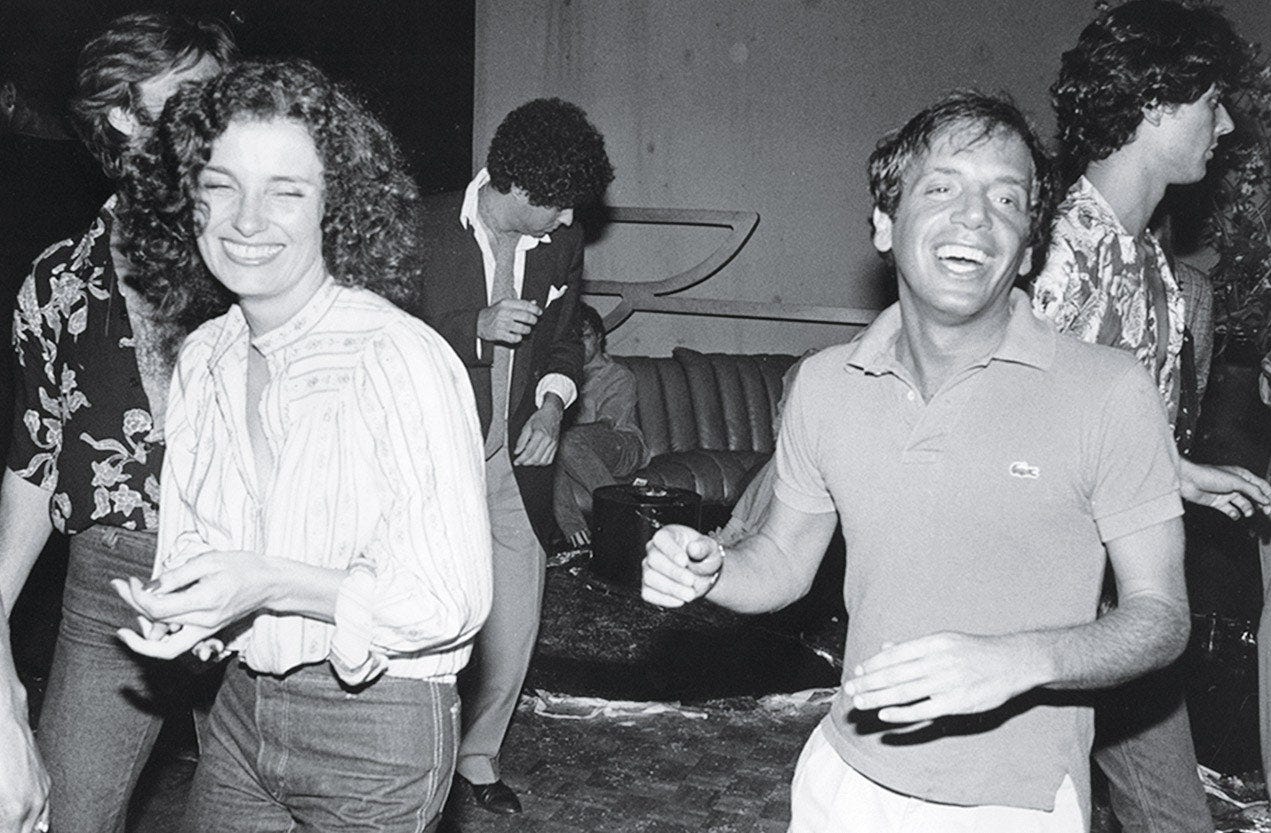
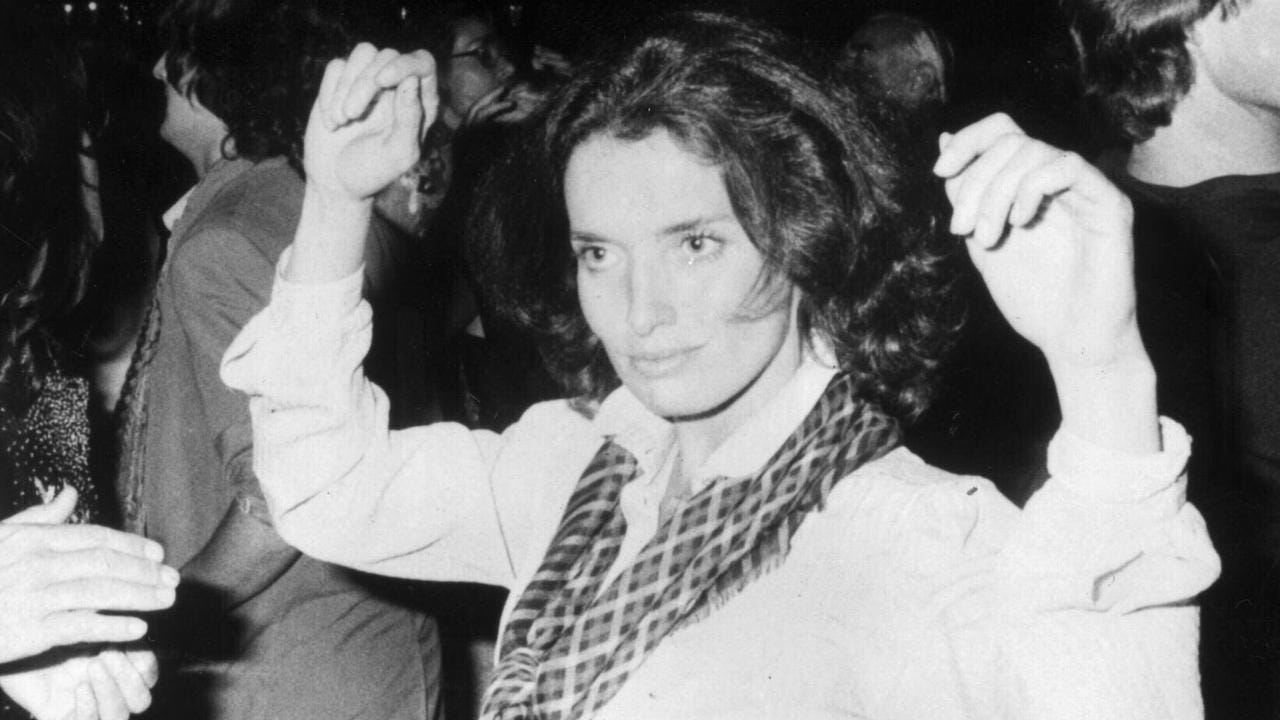
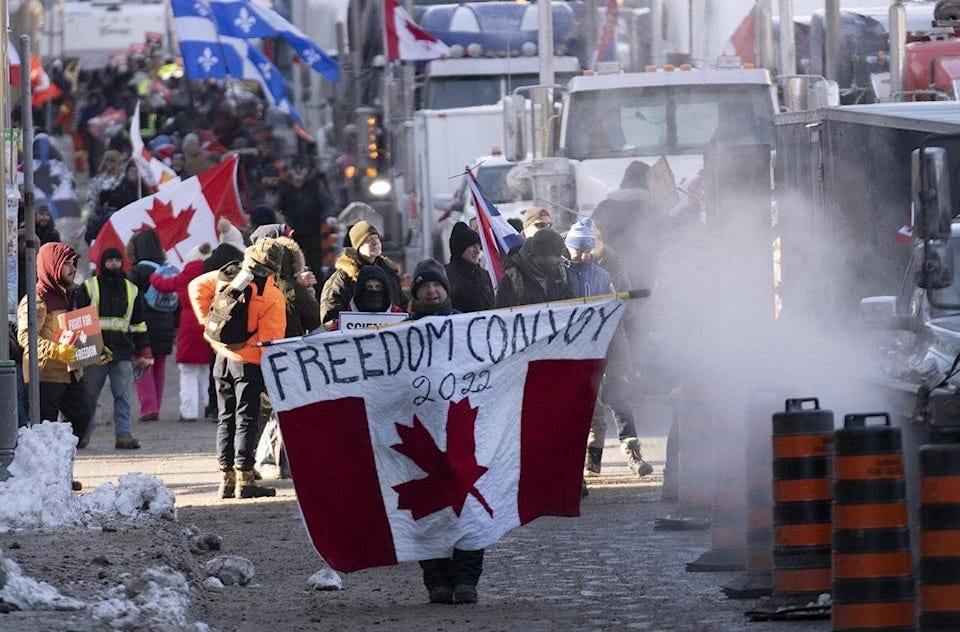

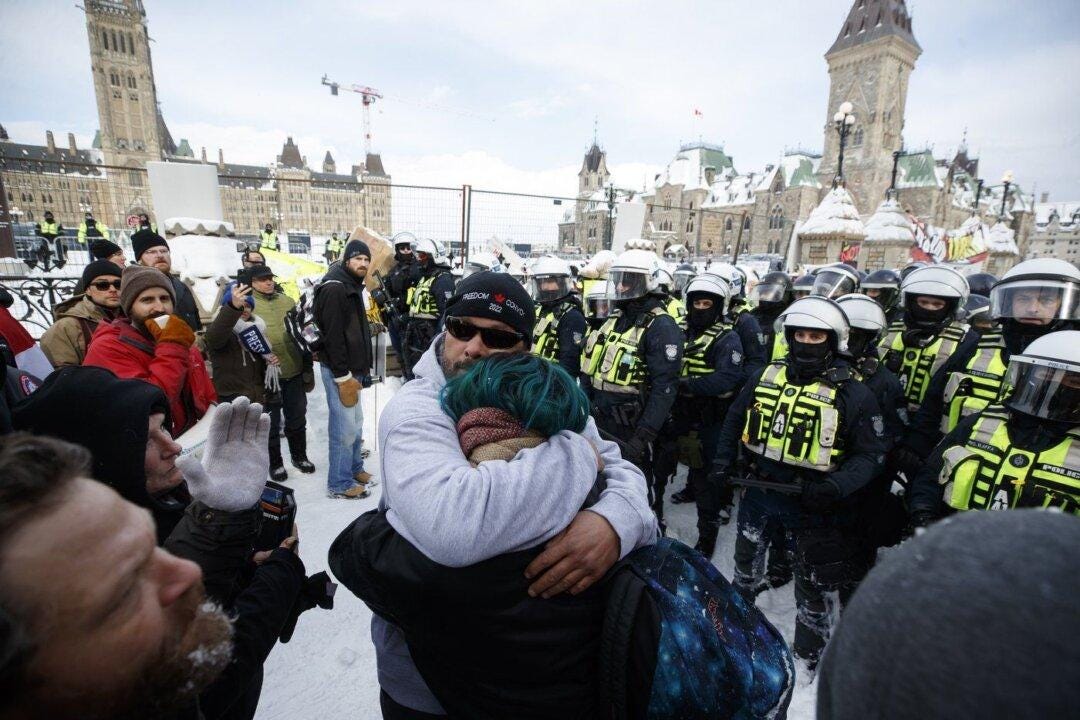
Made half his cabinet female. Feminists rejoice. Doesn't do the same for construction workers, truck drivers, law enforcement, military, fire, or oil & gas workers. Feminists rejoice.
"Son of a sexually liberated w0e-MAN who lost interest in mothering, Trudeau is a case study in the effects of toxic femininity" BINGO! I haven't even read the article and yet, your Entree was enough to get it. BINGO!